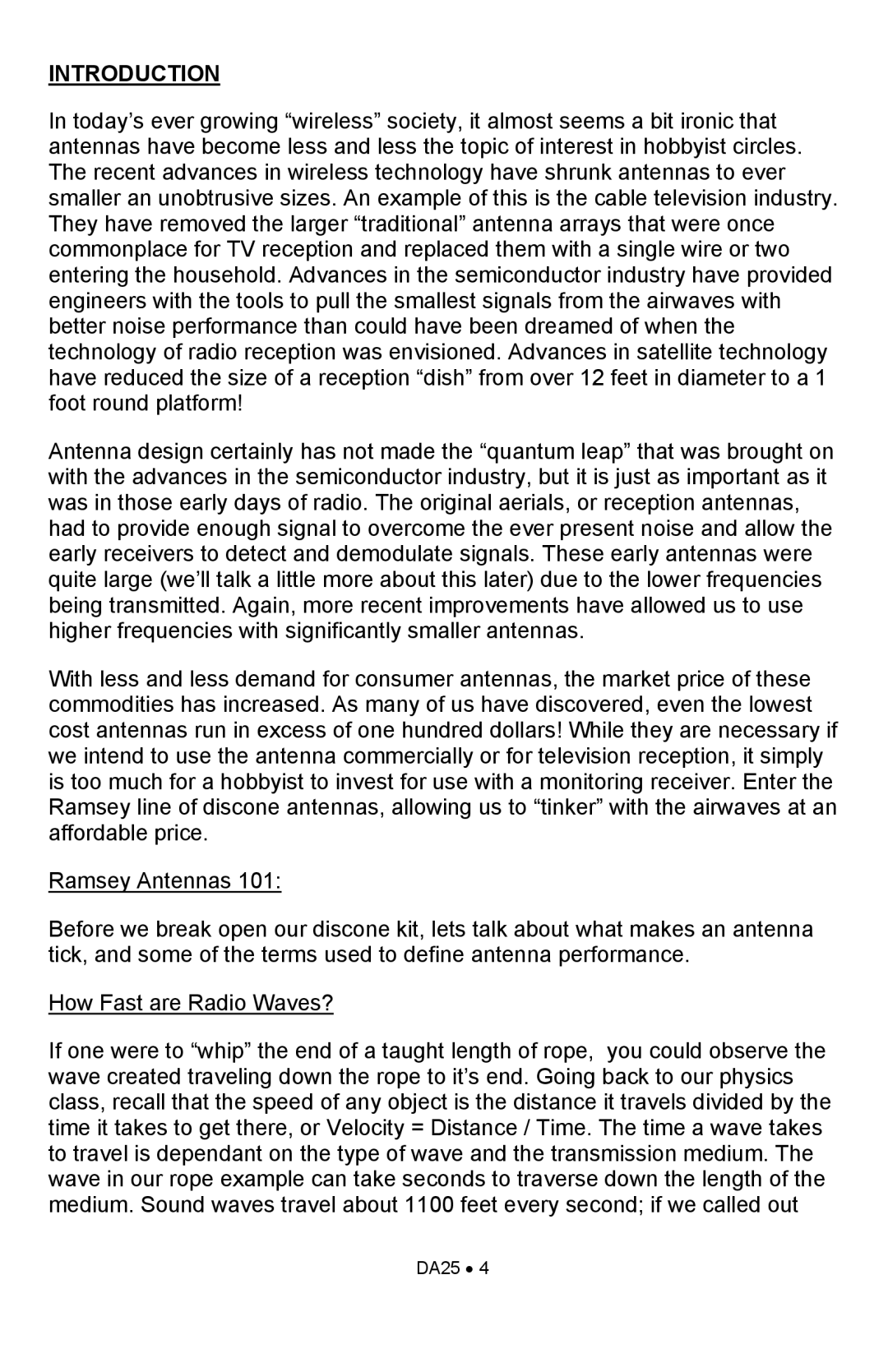INTRODUCTION
In today’s ever growing “wireless” society, it almost seems a bit ironic that antennas have become less and less the topic of interest in hobbyist circles. The recent advances in wireless technology have shrunk antennas to ever smaller an unobtrusive sizes. An example of this is the cable television industry. They have removed the larger “traditional” antenna arrays that were once commonplace for TV reception and replaced them with a single wire or two entering the household. Advances in the semiconductor industry have provided engineers with the tools to pull the smallest signals from the airwaves with better noise performance than could have been dreamed of when the technology of radio reception was envisioned. Advances in satellite technology have reduced the size of a reception “dish” from over 12 feet in diameter to a 1 foot round platform!
Antenna design certainly has not made the “quantum leap” that was brought on with the advances in the semiconductor industry, but it is just as important as it was in those early days of radio. The original aerials, or reception antennas, had to provide enough signal to overcome the ever present noise and allow the early receivers to detect and demodulate signals. These early antennas were quite large (we’ll talk a little more about this later) due to the lower frequencies being transmitted. Again, more recent improvements have allowed us to use higher frequencies with significantly smaller antennas.
With less and less demand for consumer antennas, the market price of these commodities has increased. As many of us have discovered, even the lowest cost antennas run in excess of one hundred dollars! While they are necessary if we intend to use the antenna commercially or for television reception, it simply is too much for a hobbyist to invest for use with a monitoring receiver. Enter the Ramsey line of discone antennas, allowing us to “tinker” with the airwaves at an affordable price.
Ramsey Antennas 101:
Before we break open our discone kit, lets talk about what makes an antenna tick, and some of the terms used to define antenna performance.
How Fast are Radio Waves?
If one were to “whip” the end of a taught length of rope, you could observe the wave created traveling down the rope to it’s end. Going back to our physics class, recall that the speed of any object is the distance it travels divided by the time it takes to get there, or Velocity = Distance / Time. The time a wave takes to travel is dependant on the type of wave and the transmission medium. The wave in our rope example can take seconds to traverse down the length of the medium. Sound waves travel about 1100 feet every second; if we called out
DA25 • 4
